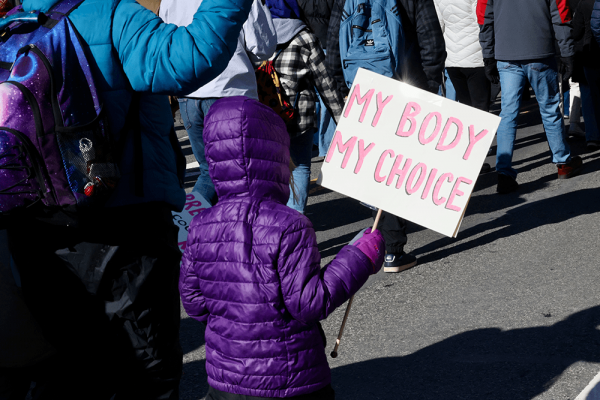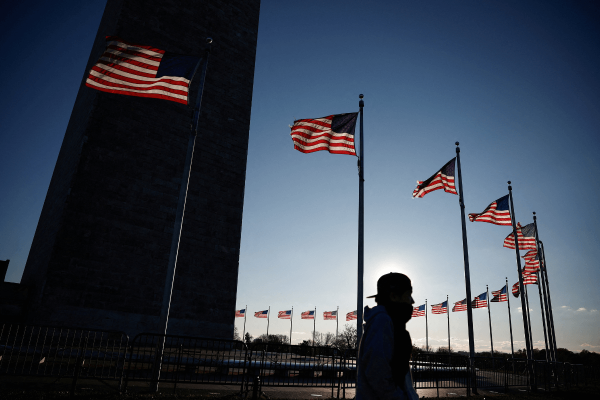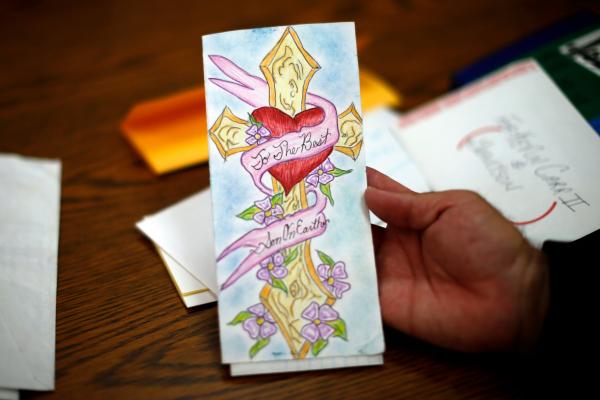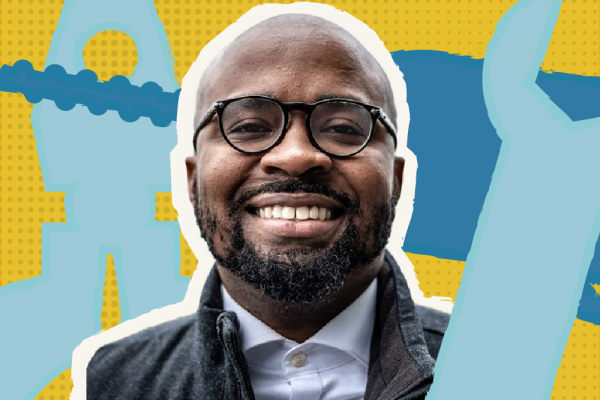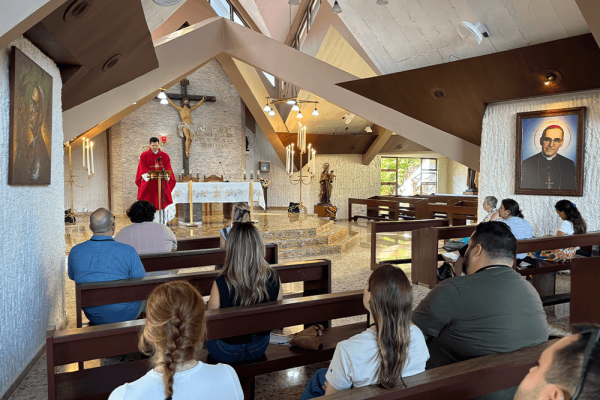The films below feature characters — real and fictional — who doubt, who sin, who ask for forgiveness, and who try to carry on and seek justice in a universe full of violence, corruption, and sickness, but also humor, love, and reconciliation.
Megan Boyd wasn’t surprised when she first heard her child Daisy describe the phrase “your body, my choice” being used at school. Saddened, yes. Disappointed, absolutely. But for Boyd, the surge in misogynistic rhetoric following the election was just another sign of a growing boldness she’d seen in her New Hampshire town.
Friends and colleagues have mentioned how the news alert ping of each new nomination can often leave them feeling frozen with dread or just wanting to unplug from the news altogether. I can relate. But I want to offer a better way forward that’s rooted in my values as a Christian — a way to engage that doesn’t leave me feeling trapped in anxiety or resignation.
In my favorite home video ever, it’s 2020 and my kids are opening their Christmas morning gifts while wearing new ski jackets, even though it was 75 degrees in South Texas, where we live. My son’s 4-year-old hands are still pudgy, and he hasn’t learned to glide his “l” sounds yet, so his raspy morning voice is extra adorable. As he unwraps his gifts, he shouts and cheers and stares at some Power Rangers in adoration.
If you’ve encountered Mason Mennenga online, it’s likely due to one of his viral tweets.
Gems like “bible college girls are like ‘marriage is so hard’ yeah, you married a 19-year old evangelical man” and “christians will name their kids after old testament prophets and then are shocked that their kids eventually speak out against injustices.” Occasionally, he dunks on a conservative personality, or he becomes the punching bag for conservative voices frustrated by his progressive theology.
But Mennenga is more than a social media account. He hosts two podcasts, writes about theology and culture, and works as director of admissions at United Theological Seminary of the Twin Cities.
The Piano Lesson is a film about what we pass on from one generation to the next: family heirlooms, deeply embedded wounds, and — as is the case for the Charles family — deeply embedded spirituality.
As a Christian, I spend a lot of time meditating on what it means to love those who have been incarcerated. These people are a specific group Jesus names in Matthew 25:36-40, saying that when we visit people in prison, we’re visiting him. Throughout the Bible, God demonstrates a concern for the marginalized. When Christians meditate on what it means to love our neighbor (Matthew 22:37-39), we shouldn’t only think of those who live next door to us, but also those who are imprisoned. But with literal walls and bars separating the incarcerated population from the rest of society, what does it actually mean to love your incarcerated neighbor?
Since his critically acclaimed album, To Pimp a Butterfly, Kendrick Lamar has been wrestling with the devil. But on GNX, his surprise album released last Friday, Lamar stops wrestling and writes a reconciliation between Satan and God.
Back when X was called Twitter, and back when I had social media, I met Andrew Wilkes. I had read some of Wilkes’ writings on Black radicalism and capitalism, and immediately decided he was someone worth following. Not only was he writing on topics that occupied a major preoccupation of my own, but he was also a Black Christian. While I think it is largely a myth that leftist politics is primarily a “white space” (whatever that means), I think it’s fair to say that Black Christian leftists are a rarity. So when I discovered Wilkes, I made a commitment to follow his work.
When Ryan Medina stepped off the plane in San Salvador, capital city of El Salvador, he felt the thrill of being in a new country. He was eager to meet the fellow pilgrims he’d only known online and excited about the journey ahead. But as their van left the bustling city streets and began the drive to the gravesite of four U.S. churchwomen, the atmosphere shifted.
“I realized we were quite literally retracing the same route these women took after they were picked up from the airport on the night they were ambushed and killed,” said Medina, a teacher at Loyola Blakefield High School near Baltimore, Md.

